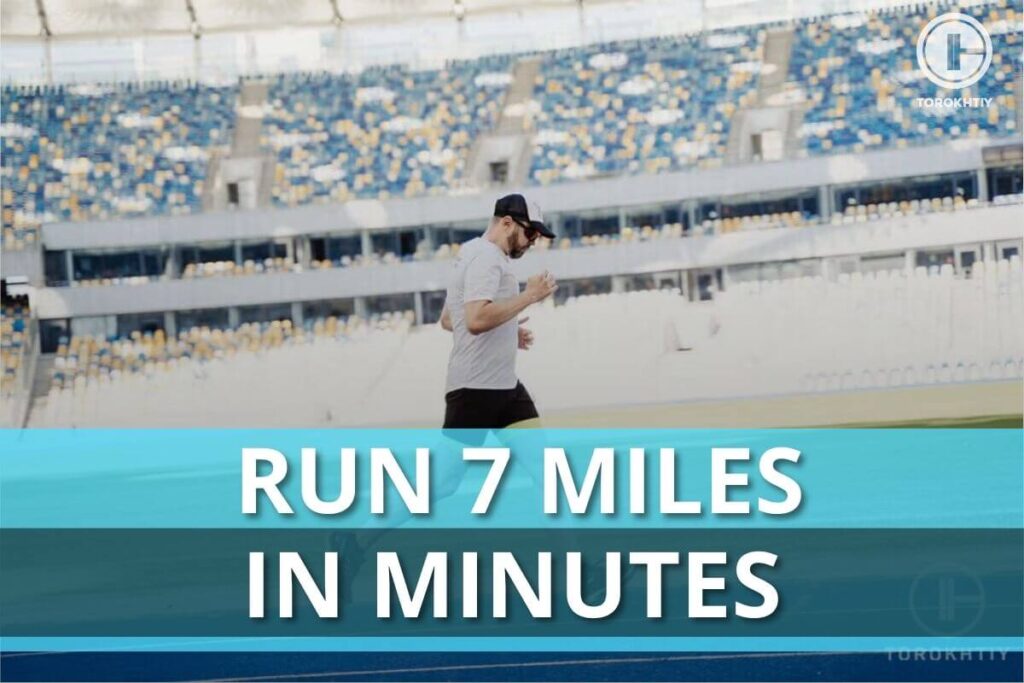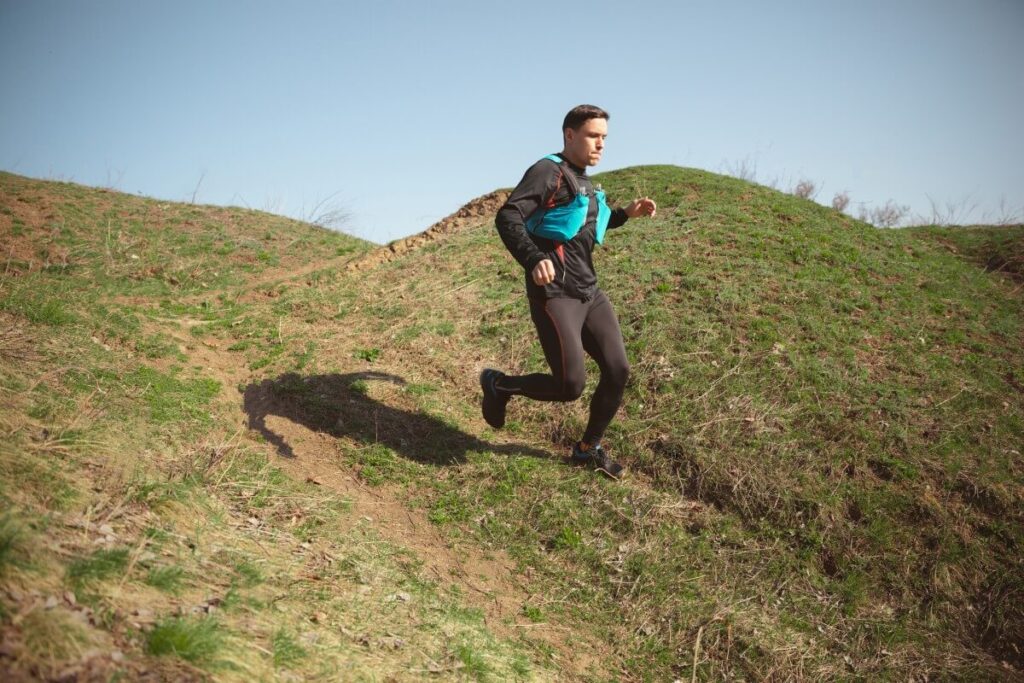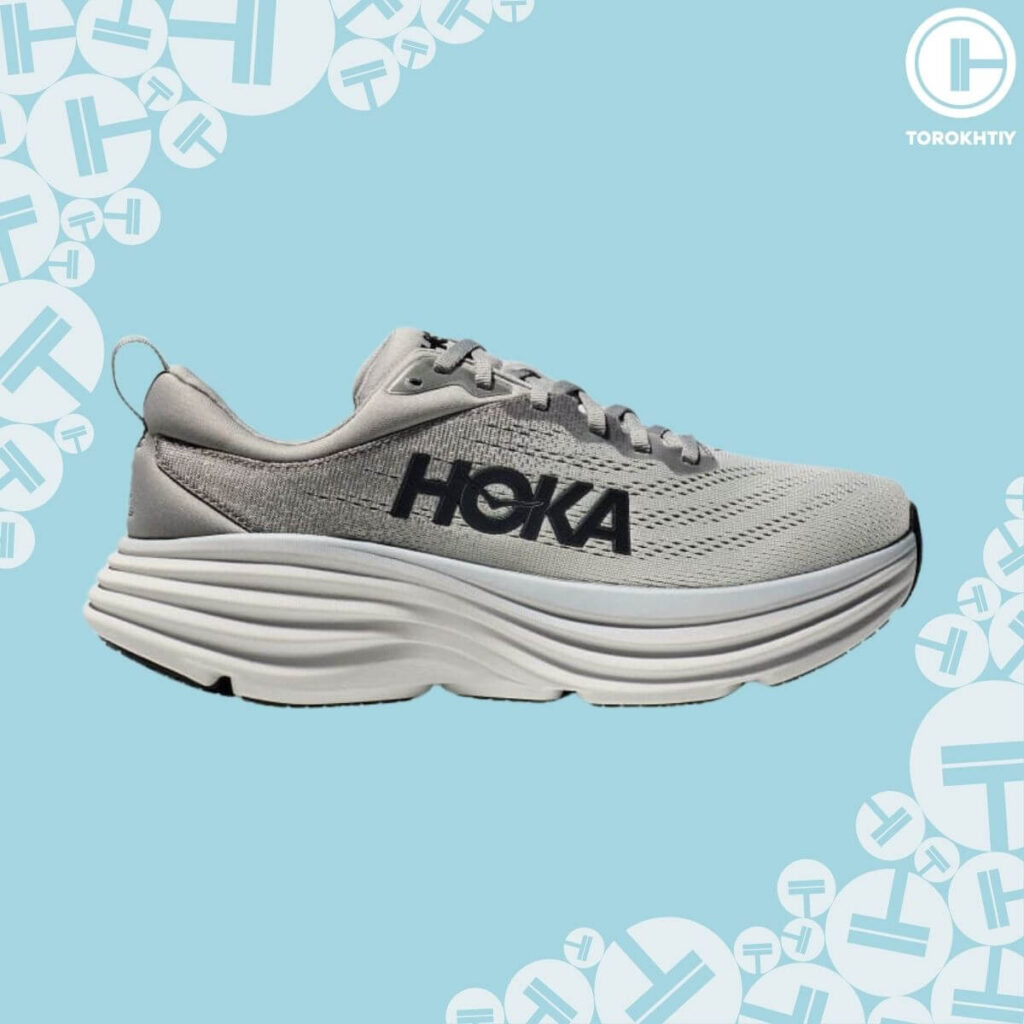How Long Does It Take To Run 7 Miles In Minutes?
Author:
Unlock your full potential by engaging with our experts and community! Have questions about your fitness journey or looking for expert advice on weightlifting techniques? Don’t hesitate — leave a comment below and Oleksandr Zagrebelnyi will provide a personalized answer and insights to help you reach your goals.
Torokhtiy is reader-supported. Some links are affiliate links, and we may earn a commission at no extra cost to you. See our disclosure page for details.
Creating a fitness goal for 7-mile runs can be challenging, especially when considering factors such as age, sex, and level of fitness. Knowing the time you need to cover 7 miles in minutes is important if you want to stay on track with your running goals.
In this article, we provide you with all the information you need regarding how long it takes to run 7 miles, from the average 7-mile time to tips on improving your running speed. Read on and learn more about making the most out of your 7-mile run!
How Many Minutes Is 7 Miles? – The average time to run 7 miles in minutes is 68 minutes, at an average pace of 9:43 per mile. However, this varies depending on age, gender, and level of fitness.

How Long Is 7 Miles?
When measuring distances, it’s important to choose the unit of measurement you are most familiar and comfortable with. For example, when discussing how long 7 miles is, you can also count in kilometers (km) or steps. The distance approximately equates to 11.3 kilometers, 10,500 steps running, and 14,700 steps walking.
Running Time Calculator: Individual Estimate For 7-Mile Run
This running time calculator is based on a formula that takes into account the distance, gender, level of training and age of the runner. You can use it to know you approximate amount of time you will be able to cover the 7 miles distance.
Running Time Calculator
Result:
Average Time To Run 7 Miles In Minutes
The average time to run 7 miles in minutes depends on a number of factors, including gender, age, and level of training. Generally speaking, the average time to complete a 7-mile run is around 01:08, with an average running pace of 9:43 minutes per mile.
However, this can vary depending on a runner’s age and gender:
| Age | Men | Women |
|---|---|---|
| 20-30 | 00:58 | 01:02 |
| 30-40 | 01:00 | 01:04 |
| 40-50 | 01:02 | 01:06 |
| 50-60 | 01:06 | 01:12 |
| 60-70 | 01:12 | 01:19 |
| 70+ | 01:22 | 01:30 |
How Long Does It Take To Run 7 Miles?
How far is 7 miles in minutes? The average time to run 7 miles varies greatly, depending on age, gender, and fitness level. Let’s discuss the average time depending on running level.
1. How Long Does It Take To Run 7 Miles For Beginners?
If you’re a beginner when it comes to running, it can be hard to know how long it will take you to finish 7 miles. On average, a male beginner can expect to complete this distance in around 01:10-01:15, while a female beginner can finish 7 miles in about 01:15-01:20.
Factors such as age, gender, and running level can influence the required time for completion. The table below outlines estimates for different categories.
| Age | Men Beginners | Women Beginners |
|---|---|---|
| 20-30 | 01:08 | 01:12 |
| 30-40 | 01:10 | 01:14 |
| 40-50 | 01:12 | 01:16 |
| 50-60 | 01:14 | 01:18 |
| 60-70 | 01:18 | 01:24 |
| 70+ | 01:30 | 01:40 |
It’s important that beginners progress gradually and build up their training intensity over time if they want to improve their speed in a sustainable manner.
2. How Long Does It Take To Run 7 Miles For Experienced Runners?
For experienced runners, it takes around 46 minutes for men and 48 minutes for women (on average) to complete a 7-mile run.
In order to illustrate this better, we’ve compiled a data table showing approximate 7-mile times for experienced runners by age group and gender:
| Age | Men Experienced | Women Experienced |
|---|---|---|
| 20-30 | 00:42 | 00:44 |
| 30-40 | 00:43 | 00:45 |
| 40-50 | 00:45 | 00:47 |
| 50-60 | 00:47 | 00:49 |
| 60-70 | 00:49 | 00:52 |
| 70+ | 00:52 | 00:56 |
As you can see, the time can vary greatly, depending on factors such as age and gender. The older the runner is, the longer it usually takes them.
You might be wondering is running 7 miles in an hour a good result? It can be good for beginners, but experienced runners often aim to run the distance in 45 minutes or less.
How Often Can You Run 7 Miles?
Running 7 miles a day can be a great way to improve your overall fitness and work towards specific health goals, such as weight loss or improving aerobic capacity.

1. Is Running 7 Miles A Day Good?
Running 7 miles a day can provide numerous health benefits, including improved physical fitness and reduced stress levels. Additionally, people who run tend to experience improved mental well-being due to the release of endorphins triggered during exercise.
However, running 7 miles a day may be too stressful for average runners. It is an impressive distance that is better suited for a long run once or twice a week, rather than for your daily running load.
Pro Tip
It is important to note that, as people age and reach their 50s and 60s, it may be a good idea to adjust their running routines, reducing long runs from 7 miles down to 3-4 miles every other day in order to avoid injury or overexertion.
Running Coach Nike Run Club Kyiv
Running does come with some drawbacks, such as muscle soreness and increased risk of injuries. You need to take proper care and not ignore rest days while following high-mileage plans.
2. Is It Good To Run 7 Miles A Week?
Running 7 miles can be enough to support overall well-being and maintain healthy weight. Studies have demonstrated that running just 6 miles a week can bring similar health benefits as daily running.
Running also leads to a faster metabolism and better calorie burning, in addition to other benefits such as endurance and stamina levels, improved lung capacity, and overall increased fitness.
How To Improve Your 7-Mile Run Time?
You can incorporate various tips into your training routine to improve your speed and endurance:
1. Improve Your Cadence
Improving your running cadence is a proven strategy to help you speed up in a 7-mile run. Cadence–or the rate at which your feet hit the ground–can directly impact how fast or slow you are when it comes to running.
A higher cadence typically requires a shorter stride and encourages more energy-efficient movement, while a slower cadence results in longer strides and greater power delivery with each step.
The recommended average number of steps per minute (SPM) varies based on factors such as pace, height, and age. If you’re looking to run faster than 10 minutes per mile, then your SPM should be 170+.
To increase your SPM, try focusing on reducing your foot strike time, as well as shortening your stride length without sacrificing contact time with the ground.
2. Incorporate Hill Training
Hill training is a key tool for improving running performance and gaining the endurance needed to race long distances. Training on hills helps improve leg muscle strength, faster strides, cardiovascular fitness, and overall running performance.
Hill sprints of 30-45 seconds can be incorporated into your regular runs as an effective way to train for races or simply enjoy a longer run with a bit of variety. Beginners should start with 5 repeats of about 30 seconds hill sprints each session and gradually increase their intensity and duration.
Experienced runners can challenge themselves further by incorporating hill workouts such as hill repeats, or running on other inclined surfaces, such as stairs or trails with inclines.

3. Try Tabata Workouts
Tabata workouts are a type of high-intensity interval training (HIIT) that can help you improve your 7-mile run time. These sessions involve intense exercise in the form of intervals, with each exercise performed for 20 seconds, followed by 10 seconds of rest.
A common Tabata lower-body workout would incorporate weights and target your glutes, hip flexors, hamstrings, quads, and calves. In addition to increasing cardiovascular fitness and muscle endurance, it also enhances a runner’s speed.
4. Climb Stairs
Stair climbing is a great way to improve your 7-mile run time, for several reasons. Not only does it help build cardiorespiratory and leg strength, but it also simulates running uphill as well.
By strengthening the muscles used when running on an incline, you can boost your endurance and push yourself further during training runs or races. Additionally, stair climbing involves repetitive movements at different paces with rests in between, which strengthens not just the legs, but the whole body. It also increases joint flexibility.
Incorporating regular stair climbs into your weekly routine helps increase speed over flat terrain, as well, making it ideal for longer runs like half-marathons where incline changes are common.

5. Incorporate Strength Training
Adding strength training to your routine is an essential strategy for running better and faster. Strength training can help you build muscle, increase endurance, and reduce potential injury risk while running.
In general, incorporating leg strength exercises and plyometrics movements at least twice a week can help improve your 7-mile run time.

6. Pace Yourself
It is important to develop the habit of pacing yourself when running 7 miles. Over-exerting yourself too often in a training run can lead to exhaustion and injury, so it’s best to find a steady rhythm that you are comfortable with and maintain that over time.
Hoka Bondi 8
- Material: Breathable and supportive mesh upper
- Sole Material: Full-length EVA midsole for maximum cushioning
- Outsole (tread feature): Durable rubber outsole with a unique lug pattern
- Drop: 4mm
- Season: Suitable for all seasons
- Special Features: Exceptional cushioning and comfort
- Size: Available in various sizes
- Type: Maximum cushioning running shoe
If you want excellent running or walking shoes or just footwear you’ll be comfortable in, you can’t go wrong with the Hoka Bondi 8.
It’s been upgraded and now they have lighter, softer materials and a new extended heel design. The heel design gives a super soft, balanced feeling from th emoment your heel hits the ground to when you push off with your toes.
As far as the weight goes, it’s around 10.80 ounces, and the heel drop is 4 mm. They’re not too heavy and the lower drop is a good balance between cushioning and feeling connected to the ground.

The Bondi 8 is focused on cushioning and keeps things simple. There’s a good amount of support without any extra stuff that you don’t really need and that would only jack up the price. Take the rear crash pad, for example – it makes for a soft, smooth ride, which is perfect if you like to run outdoors.
The upper part is made of engineered mesh, which is breathable and keeps your feet cool and dry. The tongue and collar have memory foam and mold to your foot shape. All of these features make the fit snug but flexible, which is exactly what you would want.
The Bondi 8 is eco-friendly because it uses recyclable materials in parts like the mesh and the sockliner. Plus, the shoes are completely vegan, which (if that’s important to you) is nice!
FAQ
How Long Does It Take To Walk 7 Miles?
The average walking pace is 20 minutes per mile, so it typically takes a casual walker 2 hours and 20 minutes to cover 7 miles. Age, gender, and terrain can all influence the time it takes to complete this distance.
How To Run 7 Miles Without Stopping?
Running 7 miles without stopping can be intimidating at first, but it is achievable with the right strategy and training. It starts with slowly building up endurance by gradually increasing the intensity of your runs, even if it is just a slow jog at first.
Is 7 Miles Long Enough For A Long Run In Half-Marathon Training?
Running 7 miles is considered a long run during half-marathon training for beginners. However, recommended long runs range from 10-15 miles for experienced runners to optimize their training programs.
conclusion
It is important to note that the average time to run 7 miles in minutes varies greatly depending on a few key factors. Age, gender, and fitness level all have an effect on how long it takes for someone to complete 7 miles.
Generally speaking, if you are of an average fitness level and run at a steady pace, it should take around 01:08 for you to finish your 7-mile run. Running 7 miles is a great form of exercise, especially when coupled with a healthy diet plan to support your weight loss goals.
It’s essential to remember that overdoing any exercise can lead to injuries. Monitoring your progress regularly and listening to your body will reduce this risk significantly.
What is your 7-mile run time? Please share your results in the comments below.
References:
- Carl J Lavie et al. “Effects of Running on Chronic Diseases and Cardiovascular and All-Cause Mortality.” Mayo Clinic proceedings vol. 90,11 (2015): 1541-52 https://www.mayoclinicproceedings.org/article/S0025-6196%2815%2900621-7/references
- Jarosław Domaradzki et al. “Effects of Tabata Training During Physical Education Classes on Body Composition, Aerobic Capacity, and Anaerobic Performance of Under-, Normal- and Overweight Adolescents.” International journal of environmental research and public health vol. 17,3 876. 30 Jan. 2020 https://www.ncbi.nlm.nih.gov/pmc/articles/PMC7038039/
- Pablo Prieto-González et al. “Effects of Running-Specific Strength Training, Endurance Training, and Concurrent Training on Recreational Endurance Athletes’ Performance and Selected Anthropometric Parameters.” International journal of environmental research and public health vol. 19,17 10773. 29 Aug. 2022 https://www.mdpi.com/1660-4601/19/17/10773
- Rasmus Oestergaard Nielsen, et al. “Training errors and running related injuries: a systematic review.” International journal of sports physical therapy vol. 7,1 (2012): 58-75. https://www.ncbi.nlm.nih.gov/pmc/articles/PMC3290924/
- Vedran Markotić et al. “The Positive Effects of Running on Mental Health.” Psychiatria Danubina vol. 32,Suppl 2 (2020): 233-235. https://www.psychiatria-danubina.com/UserDocsImages /pdf/dnb_vol32_noSuppl%202 /dnb_vol32_noSuppl%202_233.pdf
- Photos are made by Torokhtiy Media Team, master1305 Freepik, MART PRODUCTION, cottonbro studio Pexels
Why Trust Us?
With over 20 years in Olympic weightlifting, strength training, nutrition coaching, and general fitness our team does its best to provide the audience with ultimate support and meet the needs and requirements of advanced athletes and professional lifters, as well as people who strive to open new opportunities and develop their physical capabilities with us.
By trusting the recommendations of our certified experts in coaching, nutrition, and sports training programming, as well as scientific consultants, and physiotherapists, we provide you with thorough, well-considered, and scientifically proven content. All the information given in the articles concerning workout programming, separate exercises, and athletic performance, in general, is based on verified data.
The product testing process is described in more detail here.
Oleksandr is a running coach and member of the Nike Run Club coaching team for 8 years. A participant in national and international competitions at distances from one kilometer to the ultra trail. Owner of mountain trail running camps. Nowadays Oleksandr is responsible for creating running training programs for athletes of various levels, coaching personally offline and online, conducts trail running camps in the mountains, participates in competitions.




Still have questions after reading our article? Unlock your full potential by engaging with our experts and community! Don’t hesitate — leave a comment below and Oleksandr Zagrebelnyi will provide a personalized answer and insights to help you reach your goals.